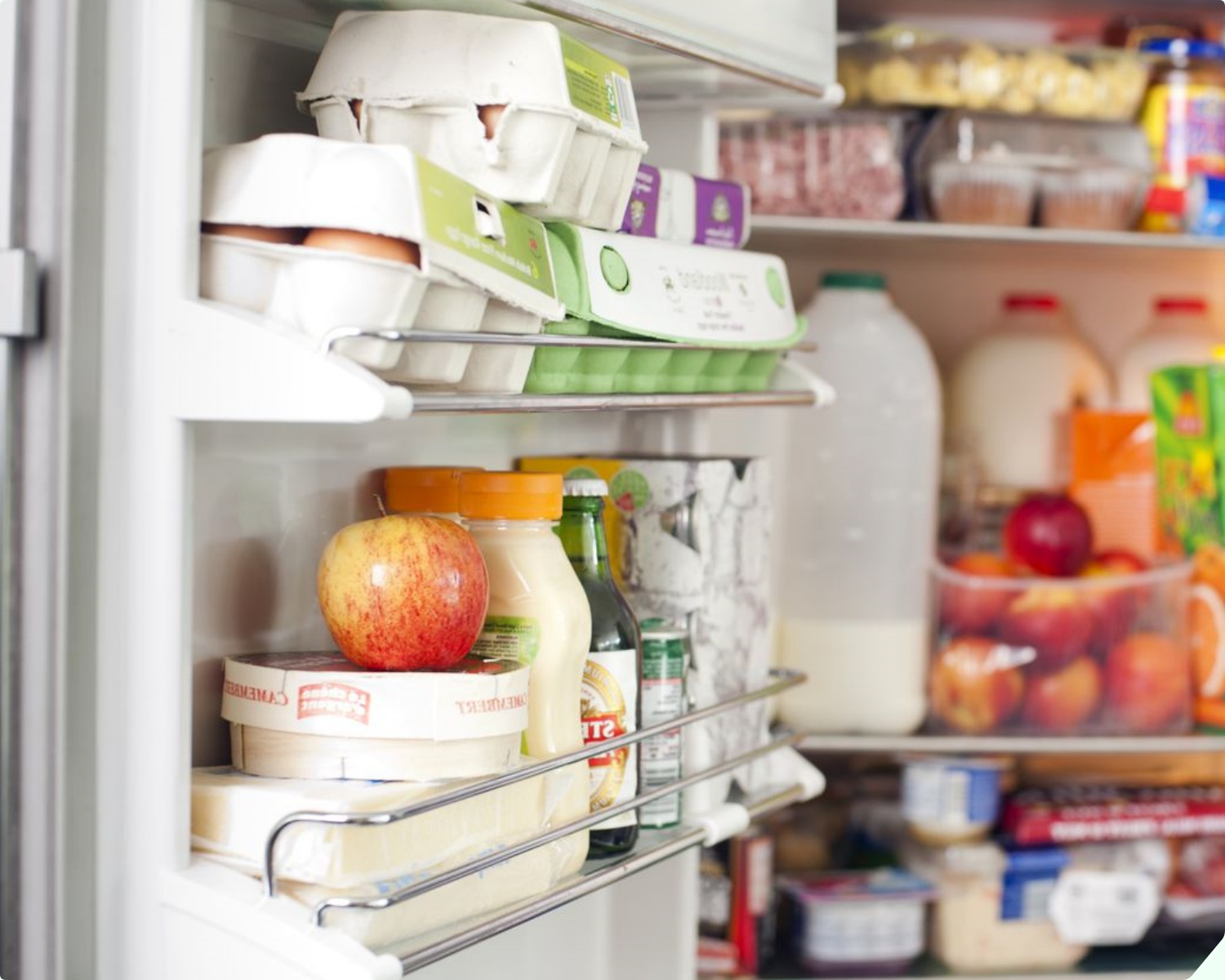
The USDA recommends that refrigerators maintain a temperature of 4.4 degrees Celsius or lower. Most compartments in the fridge’s top section meet this criterion.
However, the refrigerator doors will differ. These are frequently opened and closed, allowing warm air from the outside to enter and affect the food stored there.
Foods That Should Not Be Stored on Fridge Doors
The following are five foods that should not be stored on fridge doors, as many households may unknowingly do so.
1. Milk
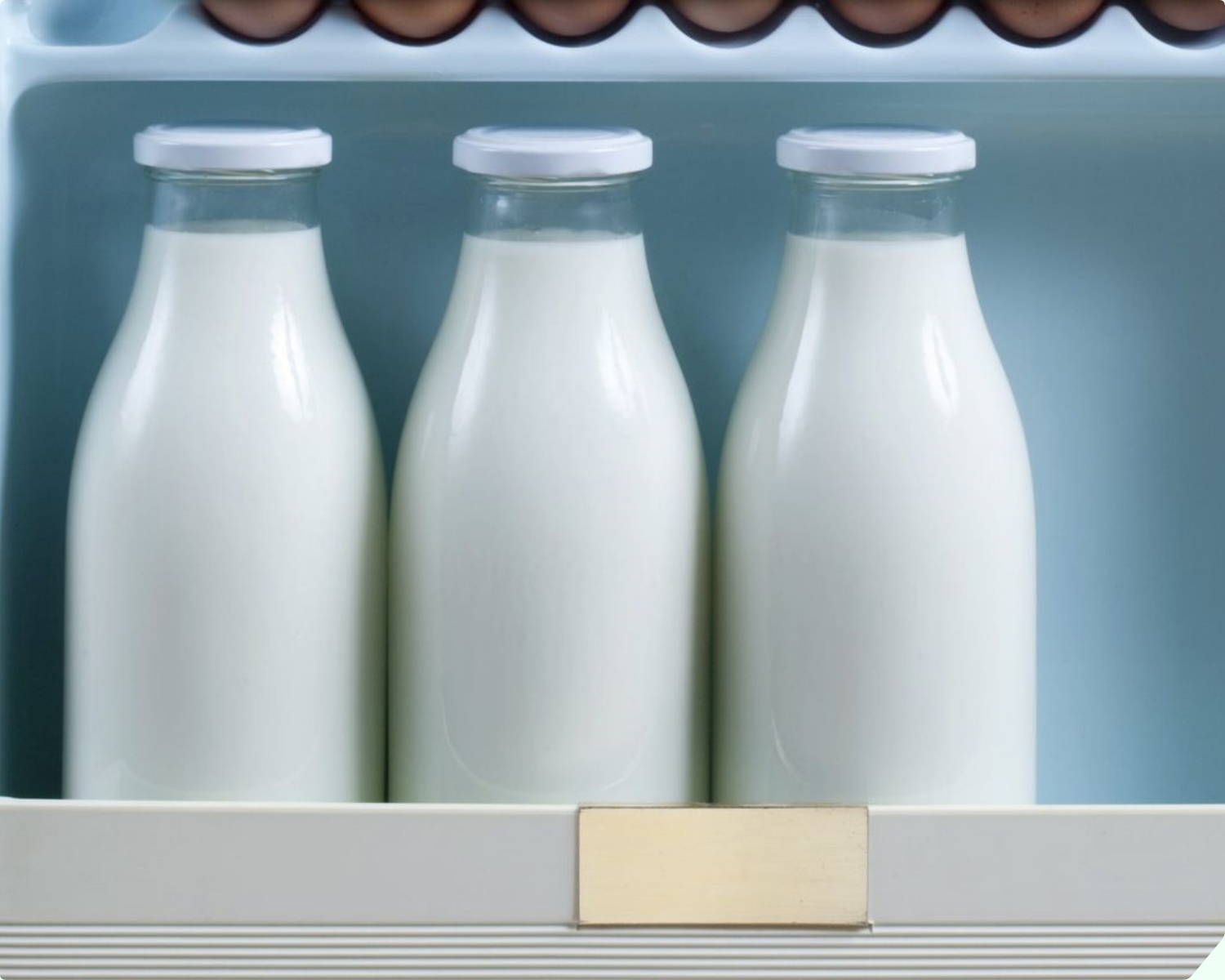
It is common for families to store milk on the fridge doors for easy access, but this is a significant mistake that can cause the milk to spoil faster. This is because the temperature on the doors is unstable and not cold enough, providing an opportunity for bacteria to thrive and potentially harm your health.
Experts recommend storing milk in a separate compartment to avoid cross-contamination from other foods. Additionally, once opened, milk should not be kept in the fridge for extended periods.
2. Eggs
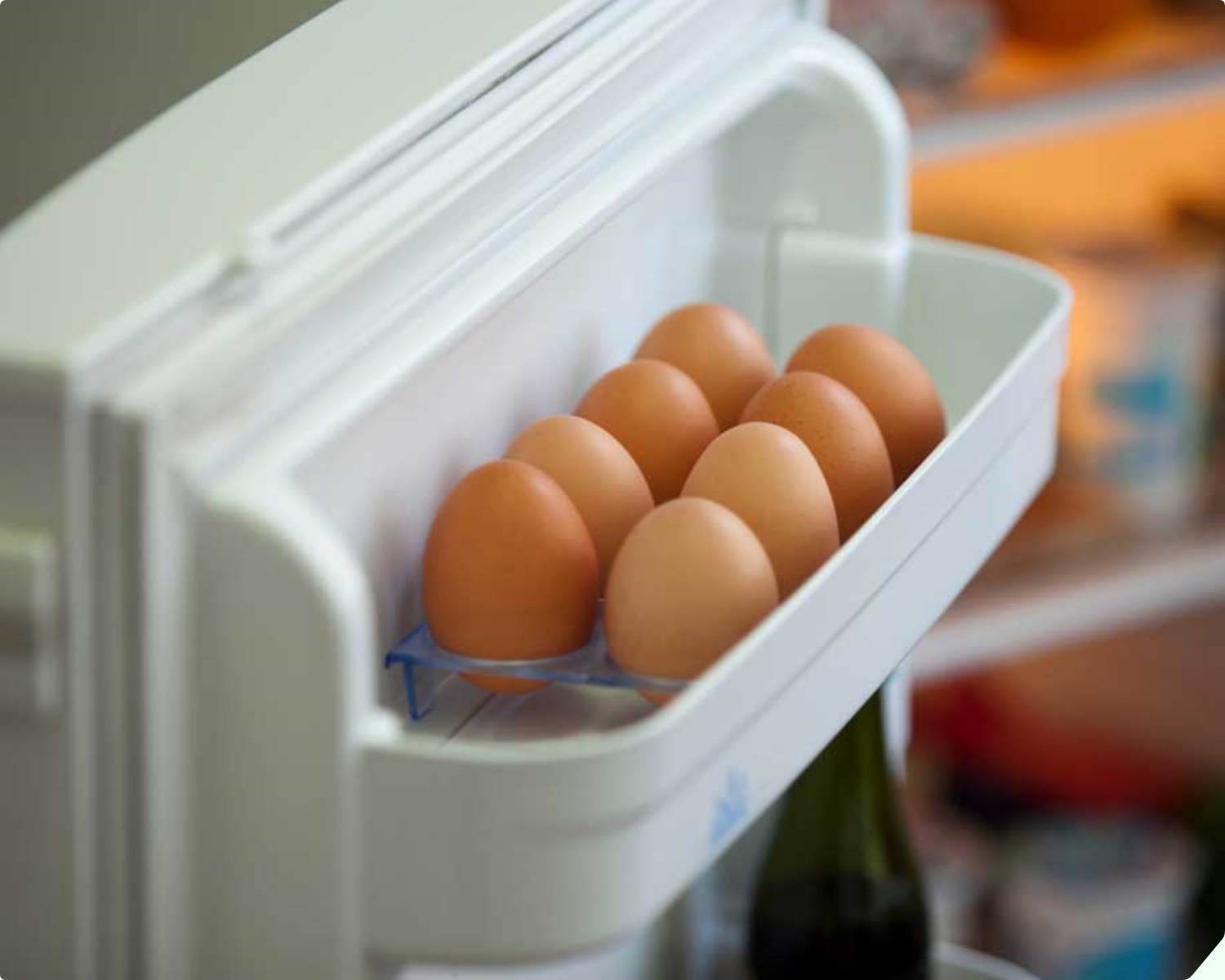
Regardless of the size of your refrigerator, there is typically an egg tray located on the fridge door. However, this is not an ideal place to store eggs.
Research indicates that eggs stored on fridge doors are more likely to harbor harmful bacteria and spoil due to fluctuating temperatures. Some studies also suggest that extremely low temperatures can destroy essential minerals and enzymes found in eggs.
Therefore, it is best to keep eggs at room temperature and consume them soon after purchase to prevent spoilage.
3. Meat

Meat can quickly spoil if not properly chilled, and since the temperature on the fridge doors is unstable and cooler than other storage compartments, meat stored there is more likely to spoil.
To ensure the freshness of your meat, clean it thoroughly, pat it dry, and then securely wrap it in plastic wrap or place it in a sealed bag. Afterward, store the meat in the fridge’s top section if you plan to use it soon, or in the freezer for longer-term storage.
It is advisable to divide the meat into portions before freezing to facilitate easy usage. Avoid freezing meat multiple times, as this can lead to the growth of harmful bacteria, posing a direct risk to your health.
4. Fruits and Vegetables
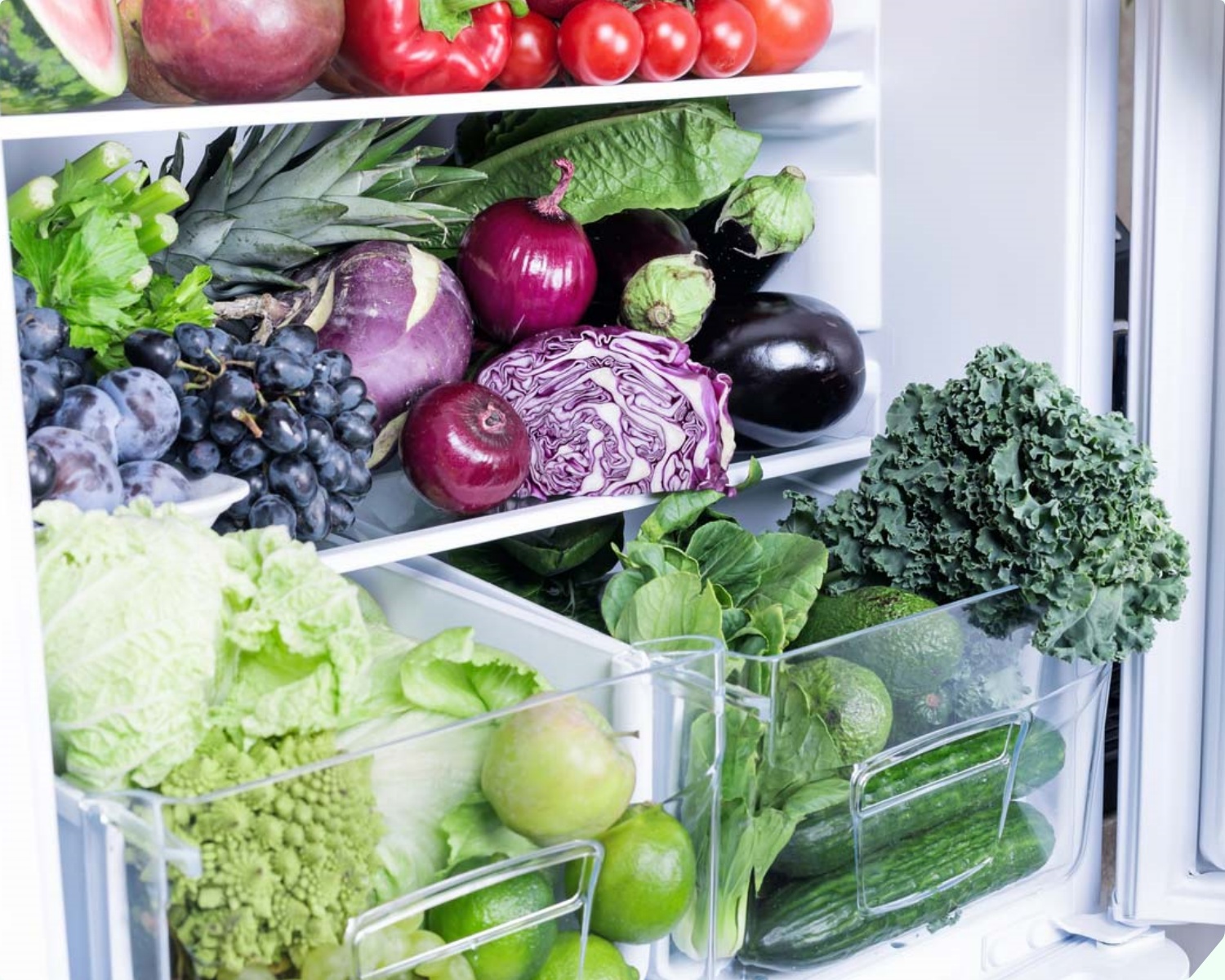
Similar to meat and other perishables, fruits and vegetables stored on fridge doors are prone to spoilage, and their leaves may wither.
Instead, store your produce in the designated crisper drawers, where the temperature is more stable, helping to control moisture levels and keep your fruits and vegetables fresh and crisp for longer.
5. Cheese
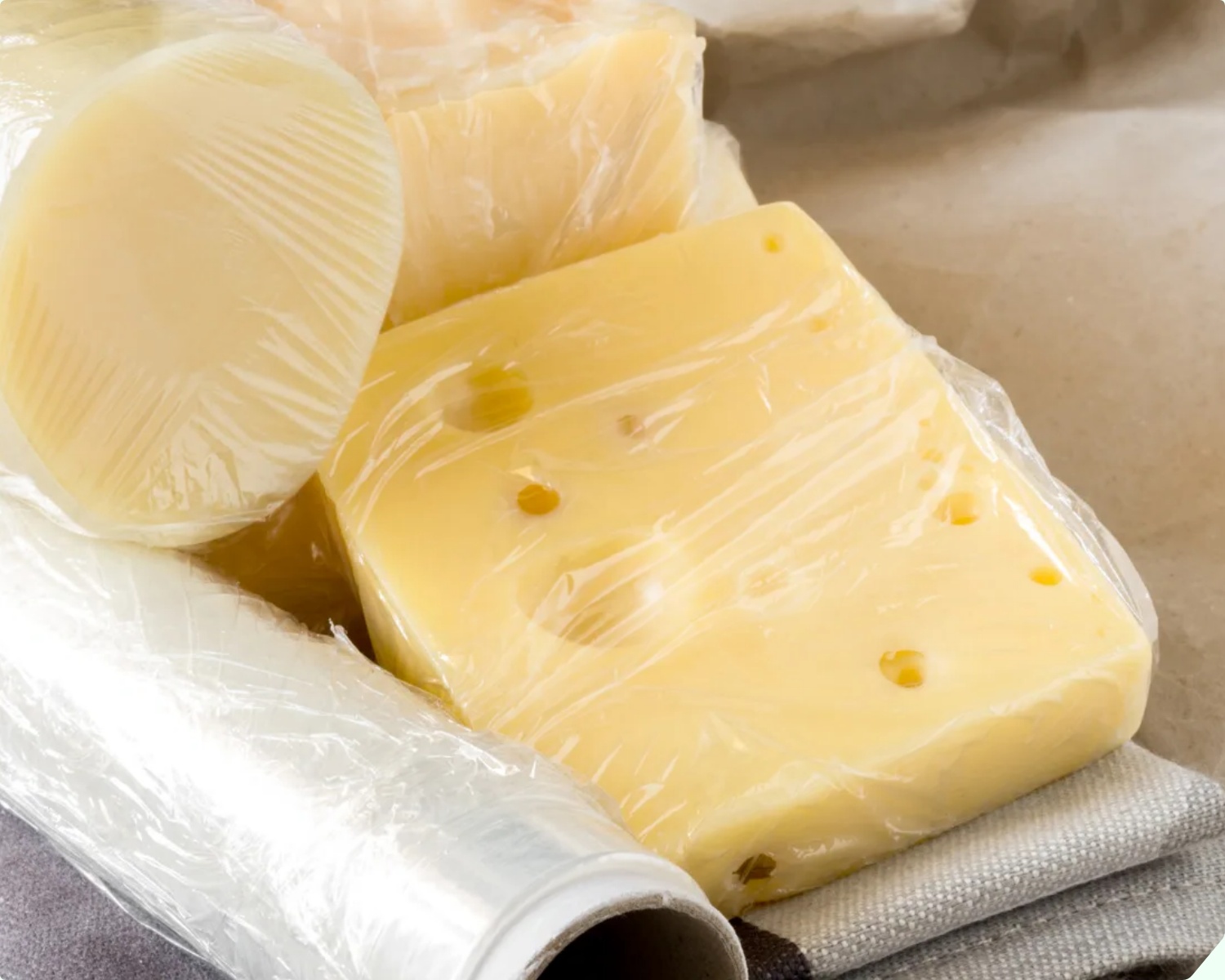
Cheese needs to be stored at the right temperature to prevent spoilage. It is best to keep cheese in the designated food storage compartments, as this will help maintain its freshness and flavor for a more extended period.
What Should You Store on Fridge Doors?
Given the unstable temperatures, what should you store on the fridge doors? Here are three suggestions to make the most of this space:
Salad Dressing
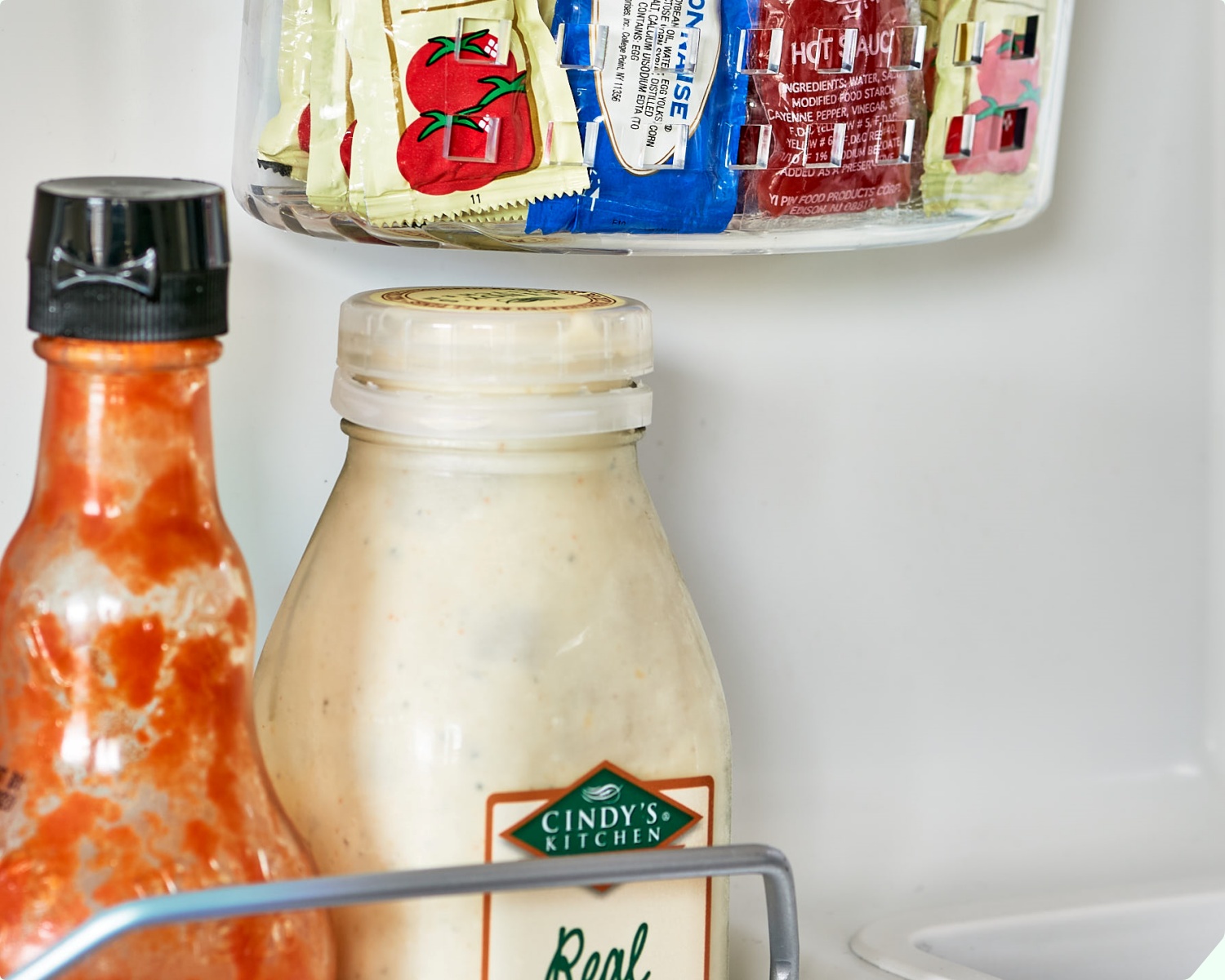
You can store salad dressing on the fridge doors. Once opened, it will stay fresh for up to two months. Some oil-based dressings may separate, but a quick shake before use will fix this.
Soft Drinks, Beer, and Mineral Water

If you’re unsure what to put on the fridge doors, consider soft drinks, beer, or mineral water. These beverages do not require refrigeration to be consumed, but chilling them can enhance their flavor.
Condiments
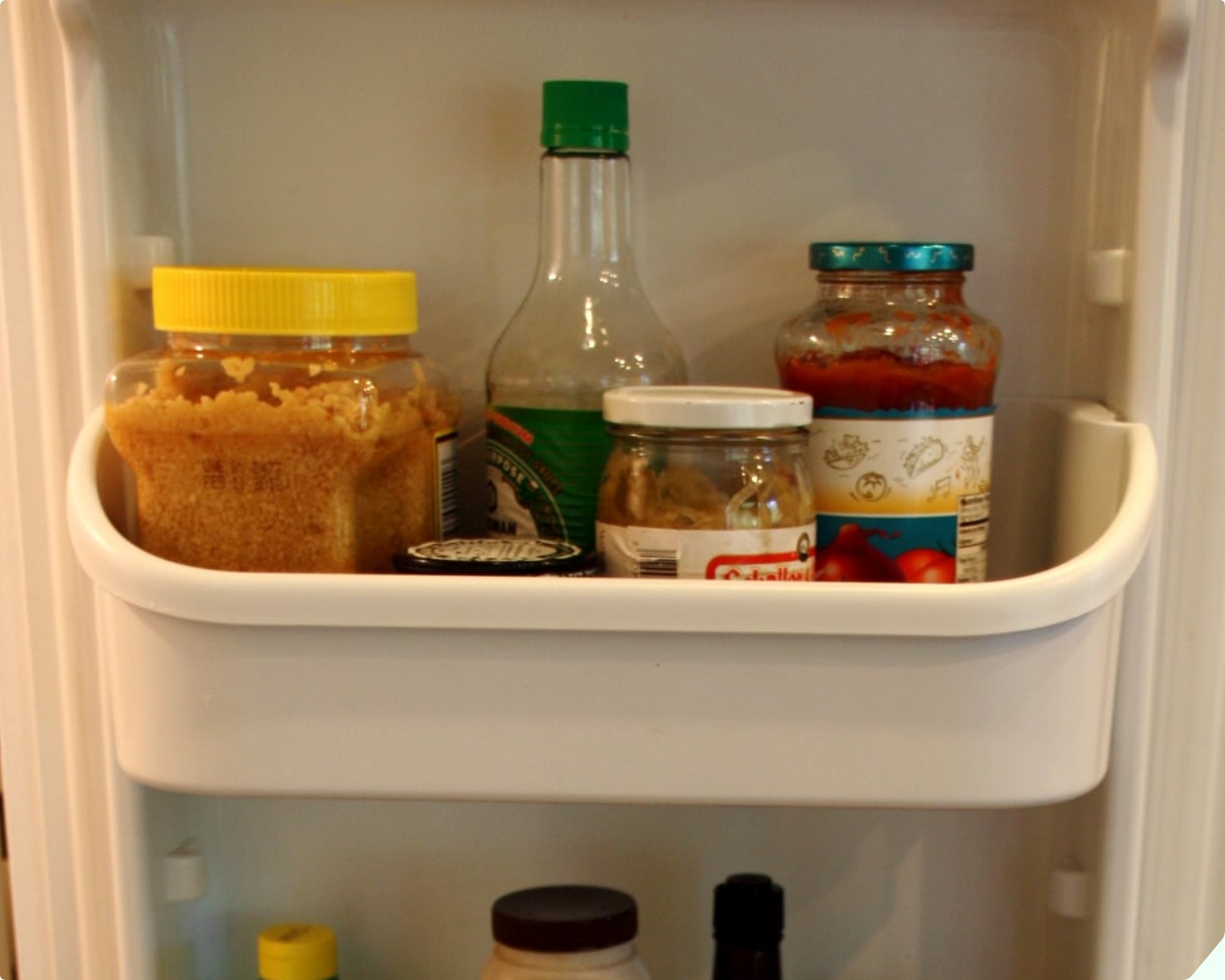
Some condiments, such as hoisin sauce and tomato sauce, are best stored in a cool, dry place. You can keep them on the fridge doors for easy access, and they will last longer than at room temperature.
“The Ultimate Guide to Perfectly Boiled Meat: Retaining Moisture, Even Cooking, and Maximizing Nutrition”
Here’s a mouth-watering introduction to a delicious pork dish that will tantalize your taste buds and impress your guests.
Discover the ultimate method for cooking tender, juicy, and flavorful pork that will leave your taste buds dancing. Uncover the secrets to creating a mouth-watering masterpiece that will have your guests asking for more. Learn how to prepare pork to perfection, ensuring every bite is a burst of flavor. This guide will reveal the tricks to transform your ordinary meal into an extraordinary culinary experience. Get ready to indulge in the ultimate pork feast!



































